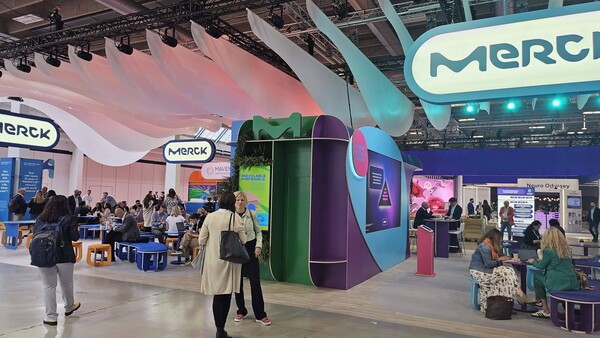Merck Biopharma Korea released the results of a real-world evidence (RWE) study of Mavenclad (cladribine) for multiple sclerosis (MS) in Korean patients at the 40th European Committee for Treatment and Research in Multiple Sclerosis’ annual conference, ECTRIMS 2024, in Copenhagen from Sept. 18 to 20.

The study was conducted in 137 Korean patients with relapsing-remitting multiple sclerosis (RRMS) and is the first retrospective RWE study in Asians. The study lasted about two years and 10 months (March 2021-January 2024), with a median treatment duration of 16 months (IQR, 10-23 months).
Results showed that 113 patients, 85 percent of the total, prescribed Mavenclad remained relapse-free during treatment. Increases in Expanded Disability Status Scale (EDSS) scores were seen in 12 percent and 5 percent of patients at one and two years post-treatment, respectively. MRI-active lesions were detected in only 24 percent of 90 patients (22) in the first year and 15 percent of 39 patients (six) in the second year.
Serious adverse events included one upper respiratory tract infection, and there were no treatment discontinuations due to lymphopenia.
“In the past, research on MS treatments has been focused on patients in the West where the disease has a relatively high prevalence,” said Kim Su-hyun, a professor of neurology at the National Cancer Center and first author of the study. “It is encouraging and meaningful that Mavenclad has announced the first RWE in Asian patients.”
“Although the results are still in the mid-stage of the study, we expect to see similar levels of clinical effectiveness and safety in Korean patients as in the global phase 3 study. These findings will provide a basis for future studies to confirm the efficacy and safety of Mavenclad in Asian patients in various clinical settings,” Kim added.
Seo Beom-joon, head of medical division at Merck Biopharma Korea, who participated as a co-author in the study, said, “Mavencla is an innovative treatment option with an oral formulation that reduces the monitoring burden and improves patient convenience. It has a short course of up to 20 days for two years and sustained clinical benefit for up to four years.
“Following this study, we will present data from the RWE analysis of more patient data at the Pan-Asian Committee for Treatment and Research in Multiple Sclerosis Congress on Multiple Sclerosis’s annual conferences (PACTRIMS 2024) in November in collaboration with the Korean Society of Neuroimmunology. As a leader in treating MS, Merck is committed to building the medical evidence so that more patients in Korea can benefit from its clinical benefits,” Seo said.
Related articles
- Merck Biopharma's Bavencio changes urothelial carcinoma treatment paradigm in Korea
- 'Bavencio improved progression-free survival in Korean urothelial carcinoma patients'
- ‘Bavencio becomes standard of care for urothelial cell cancer in 1 year of coverage’
- Will Erbitux’s reimbursement be expanded to 1st-line treatment of colorectal cancer?
- Merck’s superovulation induction drug Pergoveris gets expanded coverage
- Merck Biopharma Korea wins health ministry award for family-friendly initiatives
- [Interview] Merck's partnership with KAIST powers Korea's vision for global leadership in life sciences
- Merck Biopharma continues to provide innovative treatments to Korean patients despite external headwinds: GM
- ‘Merck, the oldest pharma company, leads innovation, standard of care’
- Merck Biopharma Korea promotes gender equality and work-life balance on Women's Day

